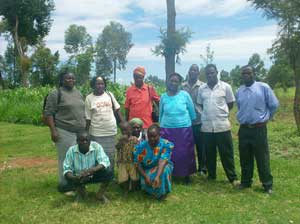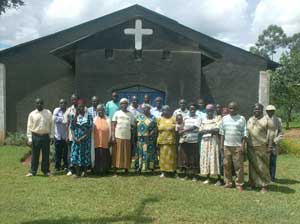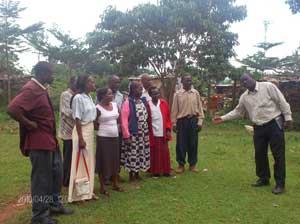Community Engagement in a Water Project

It may seem obvious, but our local partners or NGOs (non-governmental organizations), need to have a place to work and people to work with.
Determining where to work is a carefully thought out balance of resources, efficiency, potential for positive outcomes and most importantly, the desires of the people who the project will serve. Generally, the "demand" for a water project comes from one of two places...either the community themselves or by an external agency that uncovers an unmet need.
Often times, people who are coping without access to clean, safe water actively go out and try to find someone who can help them.

This is known as community demand. In these cases, the local village is the initiator. They have a desire to get clean, safe water and have organized enough to begin the process of finding it. Our partners prefer to work in communities where people already know what they want, and are committed to getting it. It helps to have these local communities already prepared to contribute to and manage their own water schemes, and we'll share more about that below.
Sometimes though, those with the greatest need have not yet found their voice. It's necessary to go out and find these communities - by talking to local people, driving out into remote areas, or using government data. Then, our partners work with them to develop a plan together so that they too are engaged in a shared process from day one.

Regardless of how we come to meet the communities we serve, and before anything else happens, a lot of talking needs to happen. We require our partners to open and maintain a dialog with each community. We want to be sure everyone has answers to questions like: Who are you? What do you want? Why are you here? What is it like living here? What do you need? and then hopefully, How can we work together? When these kinds of questions are asked, by both sides, the community and the NGO build a strong foundation of cooperation and respect by seeing each other's points of view.
It's an important step that takes time. In the long run it pays huge dividends.